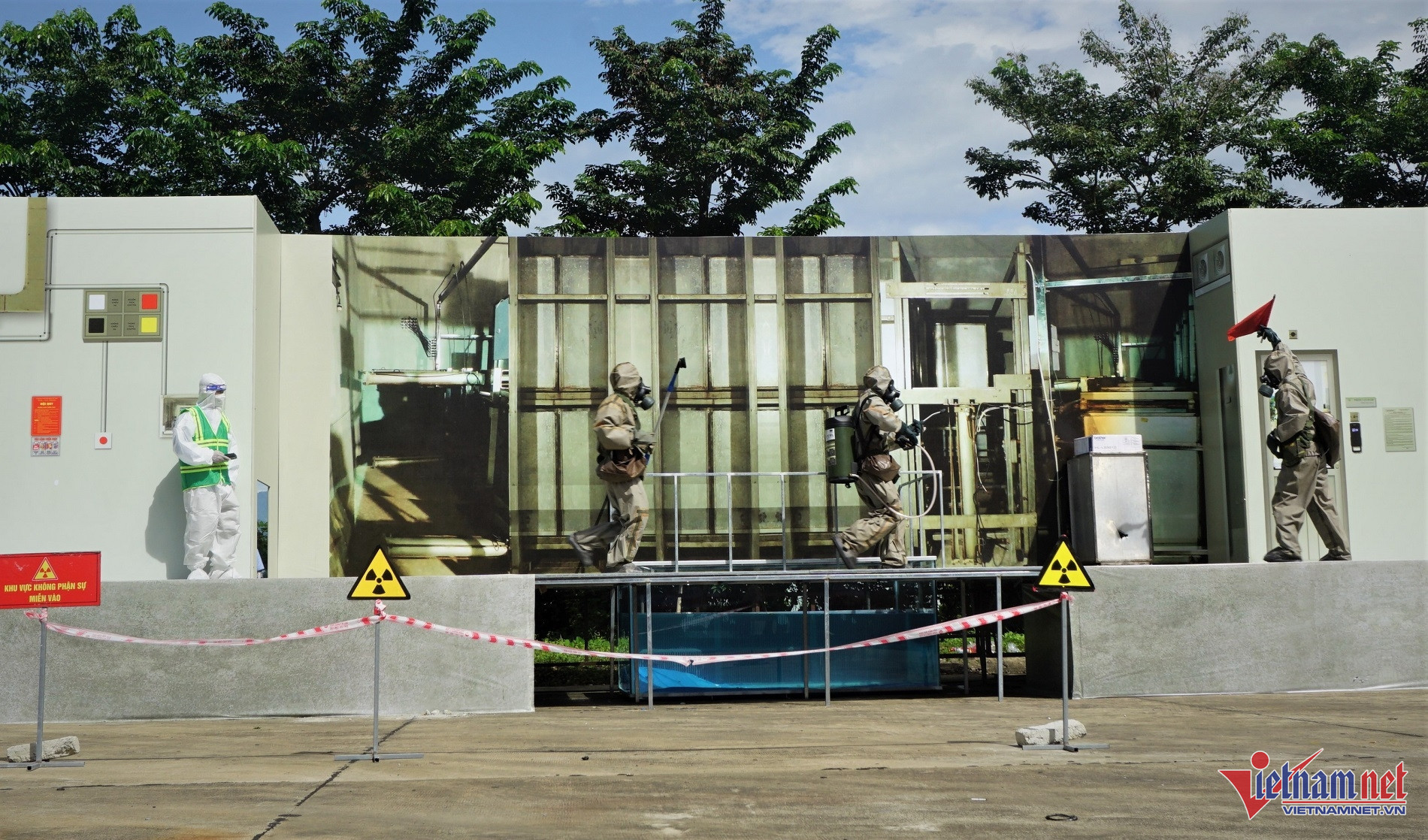
On July 26, the Da Nang People's Committee organized a 2024 nuclear and radiation incident response drill.
Speaking at the event, Nguyen Thi Anh Thi, Vice Chairwoman of the Da Nang People's Committee, emphasized the importance of preparing for radiation and nuclear incidents. The city has implemented a comprehensive plan, including five scenarios for handling such emergencies, detailing preparation, organization, mobilization, and coordination of forces and equipment.
"The response drill plays a crucial role in ensuring radiation safety, securing radioactive sources, and enhancing the leadership, command, and coordination capabilities among various forces in incident response," said Thi.
Nguyen Tan Khai, Director of the Department of Radiation and Nuclear Safety under the Ministry of Science and Technology (MOST), highlighted the rapid development of radiation applications in recent years, with approximately 1,900 radiation facilities nationwide.
Khai noted that while radiation has positive applications, it also poses safety and security risks. "Radiation is colorless, odorless, and invisible, making it difficult to detect and assess its impact. Ensuring safety, security, and improving incident response capabilities are essential for the sustainable development of nuclear energy applications," he said.

Khai added that MOST is currently drafting a revised Atomic Energy Law and is finalizing documents for submission to the government. The ministry is also leading the development of a nuclear energy master plan for 2030, with a vision to 2050.
The Vietnam Energy Institute has been tasked with developing the Nuclear Science and Technology Center in Dong Nai province. This center will feature a new research nuclear reactor with a capacity of 10 MW, intended for the production of medical and industrial radioisotopes, as well as other radiation applications.
According to Khai, the new reactor's capacity will be 20 times greater than the current reactor in Da Lat. The new Nuclear Science and Technology Center is projected to be inaugurated by 2032.
Ho Giap